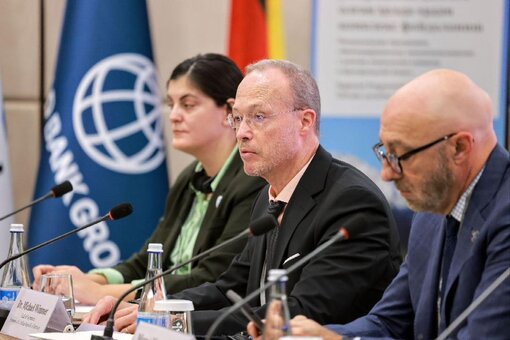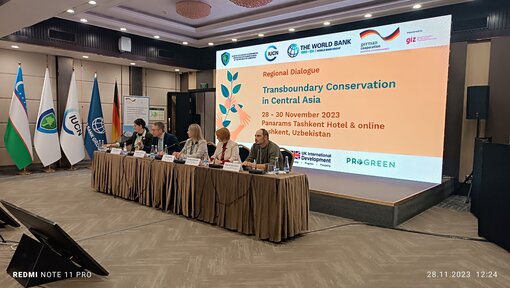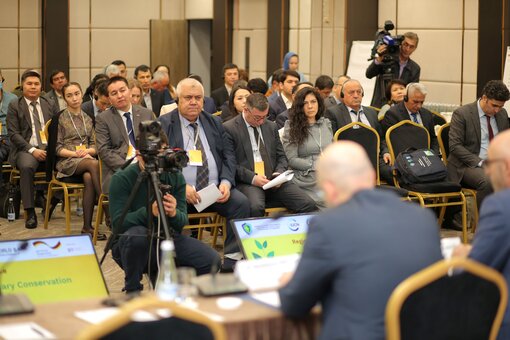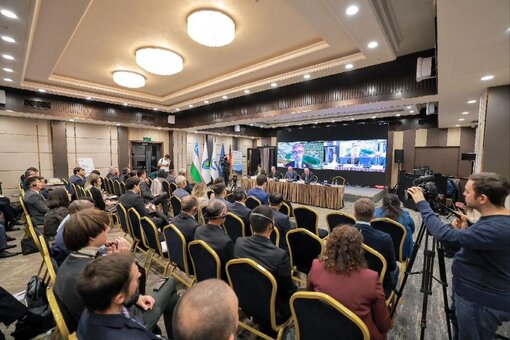The strategic regional dialogue aimed to enable relevant actors to gain a common understanding of transboundary conservation in Central Asia as a concept, their value for the region, challenges and the opportunities they offer.
The event was organised jointly by the IUCN Regional Office for Eastern Europe and Central Asia (ECARO), the Ministry of Ecology, Environmental Protection and Climate Change of the Republic of Uzbekistan, the Deutsche Gesellschaft für Internationale Zusammenarbeit (GIZ) GmbH, and the World Bank. Around 100 participants from all five Central Asian countries attended the dialogue, including representatives of political institutions, NGOs, academia and international experts.
The Succow Foundation presented its transboundary activities under the two GIZ regional programmes „Integrative and Climate-Sensitive Land Use in Central Asia (ILUCA)“ and „Ecologically Oriented Regional Development in the Aral Sea Region“. These programmes work closely together to support and promote regional transboundary cooperation in protected areas in Central Asia.
In the Zarafshan Valley between Uzbekistan and Tajikistan, the MSF supports the transboundary conservation of the ecologically valuable Tugai forests along the Zarafshan River. A standardized monitoring concept is being developed for the valley, the management capacities of the two protected areas in Uzbekistan and Tajikistan are being strengthened and concepts for cross-border tourism are being developed.
In Southern Ustyurt, a high plateau in the border triangle between Kazakhstan, Turkmenistan, and Uzbekistan, the MSF has improved biodiversity monitoring in order to analyze the impact of border fences on the migration and movement of ungulates. To this end, 20 camera traps were set up at the border in the Southern Ustyurt National Park in Uzbekistan. Thanks to the introduction of SMART in the protected areas Southern Ustyurt and Saigachy, rangers can now patrol the protected areas with digital support, record illegal activities and document sightings and traces of wildlife.
The cross-border project activities were strongly supported by the participants in the dialogue. Ideas were developed to intensify cooperation and extend it to other regions. The MSF is looking forward to further cooperation.
Snippets of the Regional Dialogue on Transboundary Conservation in Central Asia (Video © Ministry of Ecology, Environmental Protection and Climate Change of Uzbekistan)
![[Translate to EN:] Banner Stiftung](/fileadmin/_processed_/b/c/csm_banner-stiftung_fee6c1c492.jpg)



